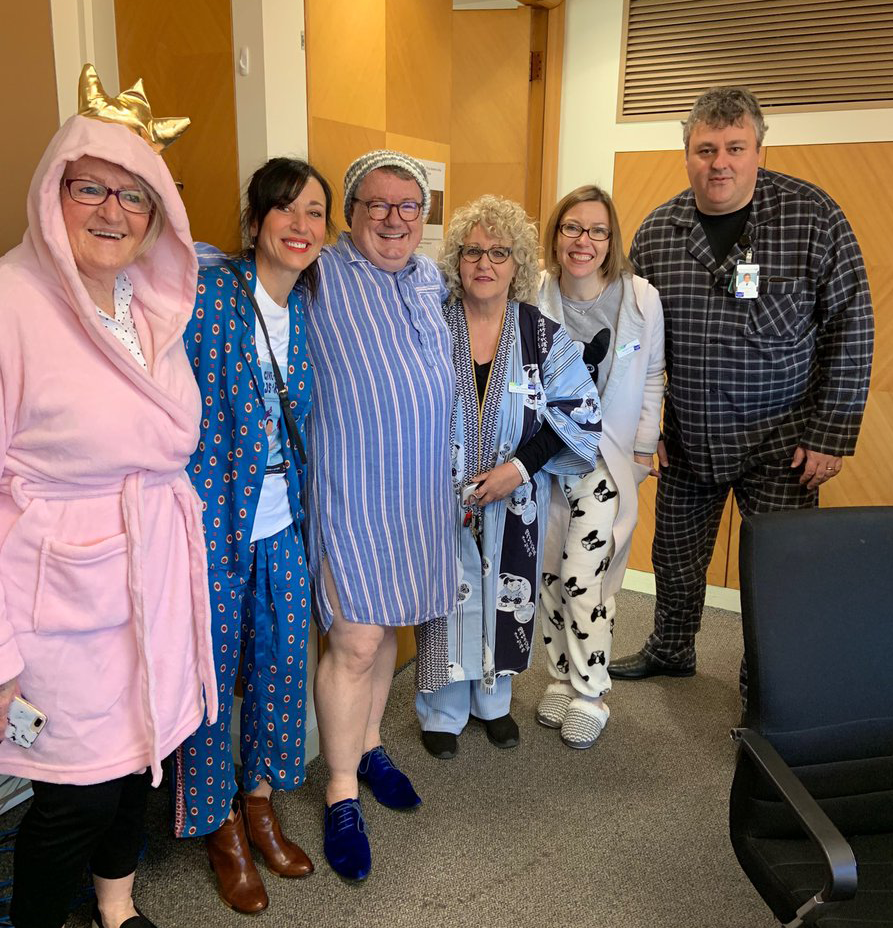Western Health staff have pulled on their PJs with the aim of encouraging patients to Get Up, Get Dressed and Get Moving for the start of the 100-day ‘End PJ Paralysis’ challenge.
They were assisted kicking off the campaign by none other than Prof Brian Dolan, the UK-based founder of End PJ Paralysis, who fronted a bustling audience in the Sunshine Hospital auditorium on Wednesday in his nightwear to explain the cause and its benefits.
‘We know that keeping people in bed is harmful. They have more harm events in terms of pressure sores and falls, they have a longer length of stay; so we’re actually killing them with kindness by keeping them there,’ Prof Dolan said.
‘We’re dealing with a problem that’s been hidden in plain sight; it’s always been there, and I think this campaign has given it a way to give it a voice and a focus.’
He encouraged relatives visiting hospital to bring in clothes and encourage their family member to get dressed and out of bed, such as by meeting them in the canteen or café rather than at their bed.
As part of the 100-day challenge Western Health is encouraging patients (where suitable) to bring day clothes and well-fitting shoes to hospital, along with their nightwear and toiletries.
Research suggests that this can help to prevent harm by reducing the risk of falls, as well as improving patients’ mental health and wellbeing.
It is hoped that by wearing their PJs to work for a day, staff can provide a visual prompter to get patients thinking about the benefits of getting back into their regular clothes sooner to aid their recovery and get home quicker.
Despite having travelled the world spreading his message about PJs, Prof Dolan was impressed by the showing from Western Health staff across all campuses.
‘I’ve never seen so many people in their pyjamas at work, from the executive leadership onwards in their pyjamas going around talking to people, praising them and cheering them, and that genuine sense of pride people have in this,’ he said.
‘It’s good for staff themselves to experience that feeling of vulnerability and awkwardness, but it’s also a bit of fun.’

